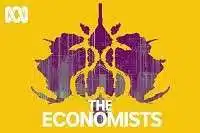
ECONOMISTS
Economists, ethicists and business sages persuade us that honesty is the best policy, but their evidence is weak. We hoped to find data that would support their theories and thus, perhaps encourage higher standards of business behaviour. To our surprise, our pet theories failed to stand up. Treachery, we found, can pay. There is no compelling economic reason, to tell the truth, or keep one’s word punishment for the treacherous in the real world is neither swift nor sure.
Honesty is, in fact, primarily a moral choice. Business people do tell themselves that, in the long run, they will do well by doing good. But there is the little factual or logical basis for this conviction. Without values, without a basic preference for right over wrong, trust based on such self-delusion would crumble in the face of temptation. Most of us choose virtue because we want to believe in ourselves and have others’ respect and belief in us.
And for this, we should be happy. We can be proud of a system in which people are honest because they want to be, not because they have to be. Materially, too, trust based on morality provides great advantages. It allows us to join in great and exciting enterprises that we could never undertake if we relied on economic incentives alone.
Economists tell us that trust is enforced in the marketplace through retaliation of reputation. If you violate a trust your victim is apt to seek revenge and others are likely to stop doing business with you, at least under favourable terms. A man or woman with a reputation for fair dealing will prosper. Therefore, profit maximizes are honest. This sounds plausible enough until you look for concrete examples. Cases that apparently demonstrate the awful consequences of trust turns out to be few and weak, while evidence that treachery can pay seems compelling.
1. What did the author find out about the theory that honesty is the best policy?
(a) It is a useless theory.
(b) It is correct on many occasions.
(c) It is correct for all businessmen.
(d) It is correct only occasionally.
2. Why does the author say that one can be proud of the present situation? Because people are
(a) respect seekers
(b) honest without compulsion
(c) unselfish
(d) self-respecting
3. What do economists and ethicists want us to believe?
(a) Businessmen are honest only at times.
(b) Businessmen should be honest at all times.
(c) Businessmen cannot be honest at all times.
(d) Businessmen turn dishonest at times.
4. Which is the material advantage which the the author sees in being honest? It permits one to
(a) undertake activities which may not be economically attractive
(b) be honest for the sake of honesty alone
(c) make a lot of profit in various areas
(d) None of these
5. Which of the following is the same in meaning as ‘persuade’ as used in the passage?
(a) try to convince (b) cheat
(c) motivate (d) give assurance
(e) give opinion
6. Which of the following is false according to the passage?
(a) People are generally honest because it pays in the long run.
(b) Virtuous behaviour earns the self-respect of others.
(c) Economists believe that all businessmen are dishonest.
(d) Generally, people are honest to earn self-respect.
7. Why do businessmen, according to economists, remain honest? Because of dishonest businessmen
(a) are flogged in the marketplace (b) are always prosecuted
(c) can make more money (d) cannot stay in business for long
8. The phrase ‘stand up’ as used in the passage means
(a) hold up (b) get up
(c) supported (d) get established
9. Which is the same in meaning as the word ‘compelling’ as used in the passage?
(a) coercive (b) binding
(c) forceful (d) mandatory
10. Which of the following best describes what the author is trying to point out through the last sentence of the passage ‘Cases that compelling’?
(a) Economists predict correctly
(b) The consequences of dishonesty
(c) The contradictions in the real world
(d) Theories do not seem to be true
Answers:-
1.(a) 2. (b)
3. (b) 4. (a)
5. (a) 6. (c)
7. (c) 8. (b)
9. (a) 10. (d)
Download the above Passage in PDF (Printable)